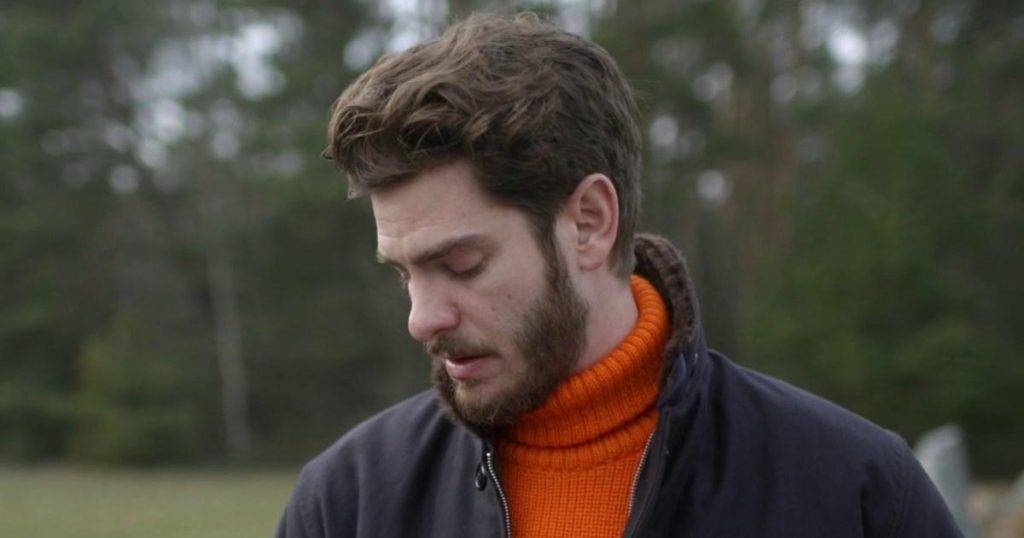Cliff Notes – Andrew Garfield breaks down in tears at grave for his murdered ancestors
- Andrew Garfield’s emotional journey on BBC’s Who Do You Think You Are? led him to the memorial grave site at Treblinka, where he mourned his great-grandfather’s sisters who likely perished in the Holocaust.
- Overcome with grief, Garfield reflected on the erasure of his ancestors’ identities, stating that their lives were deemed valueless by the Nazis.
- The actor also discovered a more positive family history, revealing his great-uncle’s successful emigration to Los Angeles and his contributions to Hollywood.
Andrew Garfield breaks down in tears at grave for his murdered ancestors
Andrew Garfield was in floods of tears at the memorial grave for his ancestors (Picture: BBC)
Andrew Garfield’s journey into his ancestry was more heartwrenching than he anticipated, as it took him to the graves of his murdered family members.
He followed his family history through to Poland in the return of the BBC 1 series Who Do You Think You Are? which aired tonight.
The Spider-Man icon broke down in tears as he arrived at the memorial grave site for those lost at the Nazi death camp Treblinka, Poland.
Andrew, 41, had uncovered the story of his Jewish great-grandfather Ludwig Garfinkel, who had successfully escaped the Holocaust.
However, he was then confronted with the solemn realisation that Ludwig’s three sisters, who did not escape, likely met a horrific end at the hands of the Nazis.
As he reached Treblinka, which is now marked with engraved stones representing towns the victims had lived in, the Social Network star was overcome with emotion.
He was on the return of Who Do You Think You Are (Picture: BBC / Wall to Wall / Stephen Perry)
His great-grandfather survived the Holocaust in Poland (Picture: BBC)
‘This is the memorial stone for the Jews from Kielce that met their ultimate fate here in Treblinka,’ he explained through his tears.
Kielce was where Ludwig’s sisters, along with many other persecuted civilians, fled to and lived in ghettos.
‘Which, um, my -‘ Andrew began to explain before his voice cracked and he wiped away more tears.
He continued: ‘Which, my great-grandfather’s three sisters, we imagine, had to have been murdered. Szajndla, Dwojra, and Basia.
‘That their lives were deemed so valueless and the Nazis attempted to erase even the memory of them. Even their names, even any record of them.
‘And they succeeded in a certain way.’
While the records of the death camps were erased, most of the Jewish population living in Poland’s ghettos were brought there, with over 1,000,000 unmarked deaths.
As he placed remembrance stones on top of the Kielce standing stone, he added that these women were just ‘normal girls’ who had lives and dreams.
Andrew added: ‘This journey that we’ve been on has recovered my memory of them and my family’s memory of them. I’m very grateful for that.
‘I wish I had known you better. I wish you peace.’The We Live In Time actor followed the visit with a return to Los Angeles, where he was born and spends half his time.
In a deeper connection to the city, it was revealed that his father’s great-uncle, Harry Kupcyks, had emigrated there from London and set up a ladies’ tailoring store.
He changed his last name to Cooper and was said to have worked with Marilyn Monroe, Ava Gardner and Elizabeth Taylor.
‘It’s just really lovely to see a success story,’ Andrew shared of his ancestor’s Hollywood roots.
Who Do You Think You Are continues Tuesday at 9pm on BBC 1.


